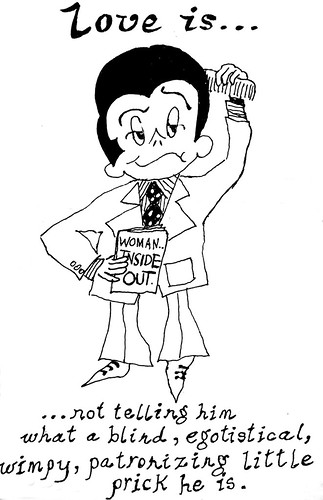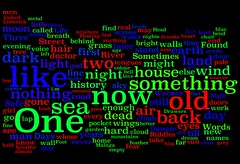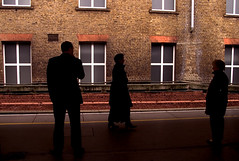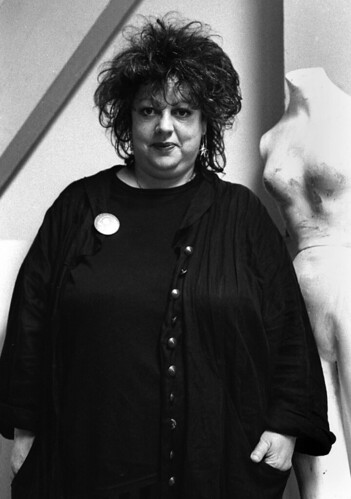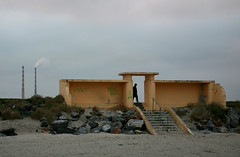
That's the question our five year old recently asked (it being the time of the year that's in it). And it would have been even more charming if he put it to us over breakfast rather than waking his mum in small hours.
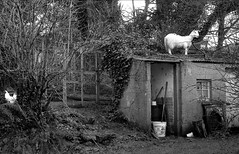

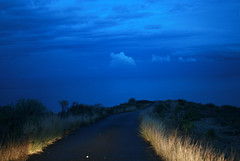

TOMMY Tiernan used to do a joke about the old Christian contention that the Jews killed Jesus: “The Jews say they didn’t kill Jesus. Well, it wasn’t the f**kin’ Mexicans was it?” In the context and confines of a live comedy club, it was a line that always worked well for him. He brought this joke up in a question-and-answer session [with Olaf Tyaransen] arranged by Hot Press magazine at the Electric Picnic earlier this month.
Asked by an audience member if he had ever been accused of anti-Semitism (Tiernan has been accused of many “isms” during his career), he replied that the above line had upset two Jewish people at a show he did in New York.
They approached him afterwards to remonstrate with him about the nature of the joke. The couple’s complaint, he said, was that “the Israelis are a hunted people” and therefore the joke was insensitive.
He spoke about the nature of his material and how it can cause offence: “It’s all about being reckless and irresponsible and joyful. It’s not about being careful ... and mannered. It’s trusting your own soul and allowing whatever lunacy is inside you to come out in a special protected environment where people know that nothing is being taken seriously."
“But these Jews, these f**kin’ Jew c**ts came up to me. F**kin’ Christ-killing b**t**ds! F**kin’ six million? I would have got 10 or 12 million out of that. No f**kin’ problem! F**kin’ two at a time, they would have gone! Hold hands, get in there! Leave us your teeth and your glasses!”
Firstly, I would like to say that as a private individual I am greatly upset by the thought that these comments have caused hurt to others as this was never my intention; yet, the Electric Picnic public interview with Hot Press Magazine has been taken so far out of context that I am quite bewildered.
The things that I said in front of a live audience were in an attempt to explain my belief that one of the duties of the comic performer is to be reckless and irresponsible and that the things that they say should NEVER be taken out of context. If you read the full transcript or listen to the podcast you will see that I preface my rant by saying that it should not be taken seriously and as such, the rant took place as an example of my argument. While it is out of context, which it most definitely is now, it seems callous cruel and ignorant.
This is not the first time that something like this has happened and it probably won’t be the last. However, as a public performer I can only hope that whatever wild, irresponsible and reckless things that come into my head will be taken in the context in which they were said.
According to Hot Press editor, Niall Stokes: “if you see or read it in context, there is a comment in there about people who are fanatical and who can’t take a joke. But to interpret it as anti-Semitism is wrongheaded in the extreme. The way I see it, he is satirising anti-Semitism, while making a more general point that we should all be able to laugh at ourselves.
Tommy Tiernan
“If Alan Shatter reads the interview and comes to the conclusion that Tommy Tiernan is prejudiced against Jews, then he is suffering from a life-threatening humour by-pass and needs to get it attended to quickly ... The fact is that the interview turned – as many of Tommy Tiernan’s interviews do – into a spontaneous comic performance in which he improvises around whatever subjects are thrown at him ... What he said was strong, referring to the fact that he’d have killed not six million but 10 million or 12 million Jews.
“But, while you have to read the full interview to understand what was going on and to see it in context, only an idiot could think that he was expressing his own feelings.”
Tiernan is not your typical comic, chucking out tepid observational inanities to get a guest slot on a TV panel show. His is an intense and passionately felt style of comedy.
[...]
The attraction, for many, is that he is not just a gag-merchant but someone who dances around the lines of taste and decency. Controversy follows him around like a stalker.
[...]
If you were to take Tiernan’s remarks about the Holocaust at face value, it would be hard not to view them as wicked. But you might also choose to see them in the way he says they were intended. He asks that we consider them in the context of an entertainer reaching around during a live interview for dramatic and extreme imagery. The decision on how to interpret them lies with the receiver.


